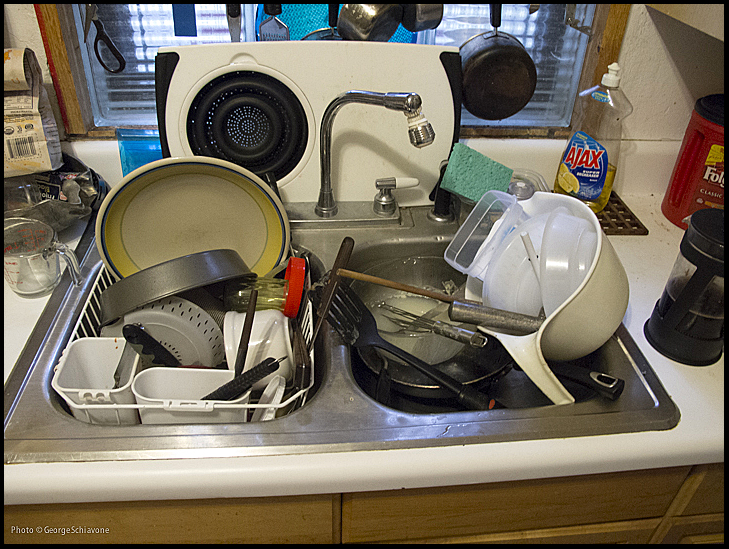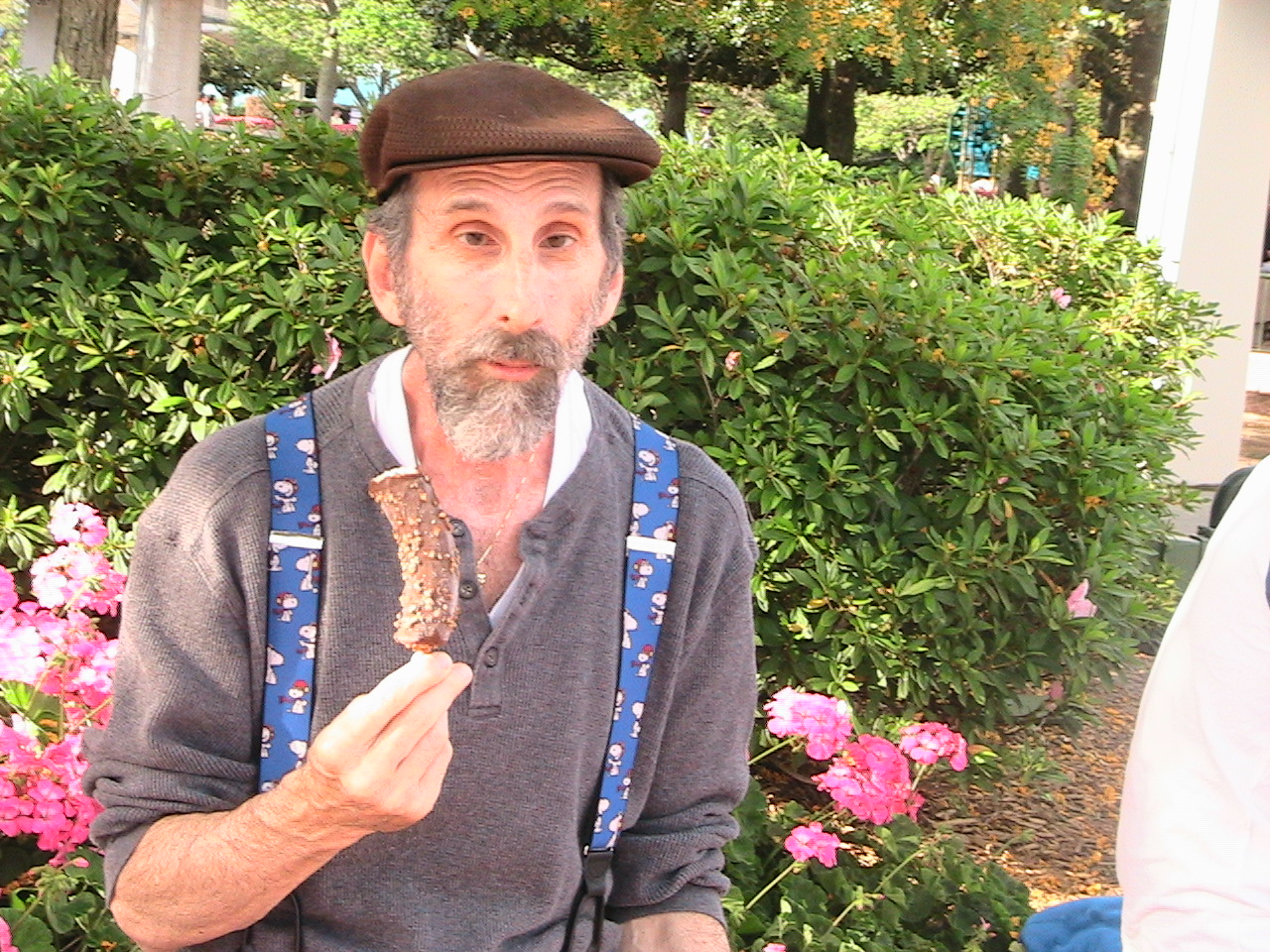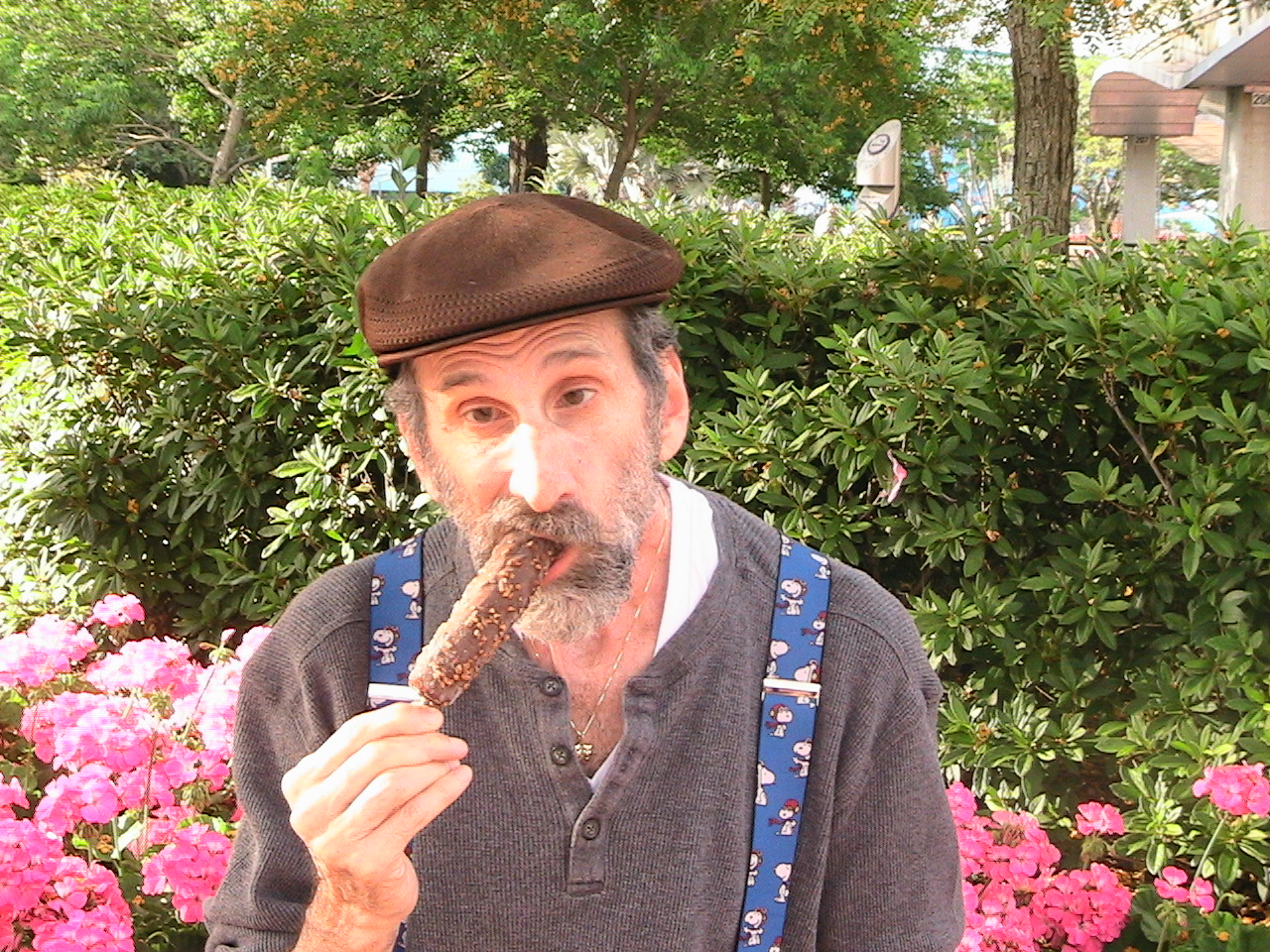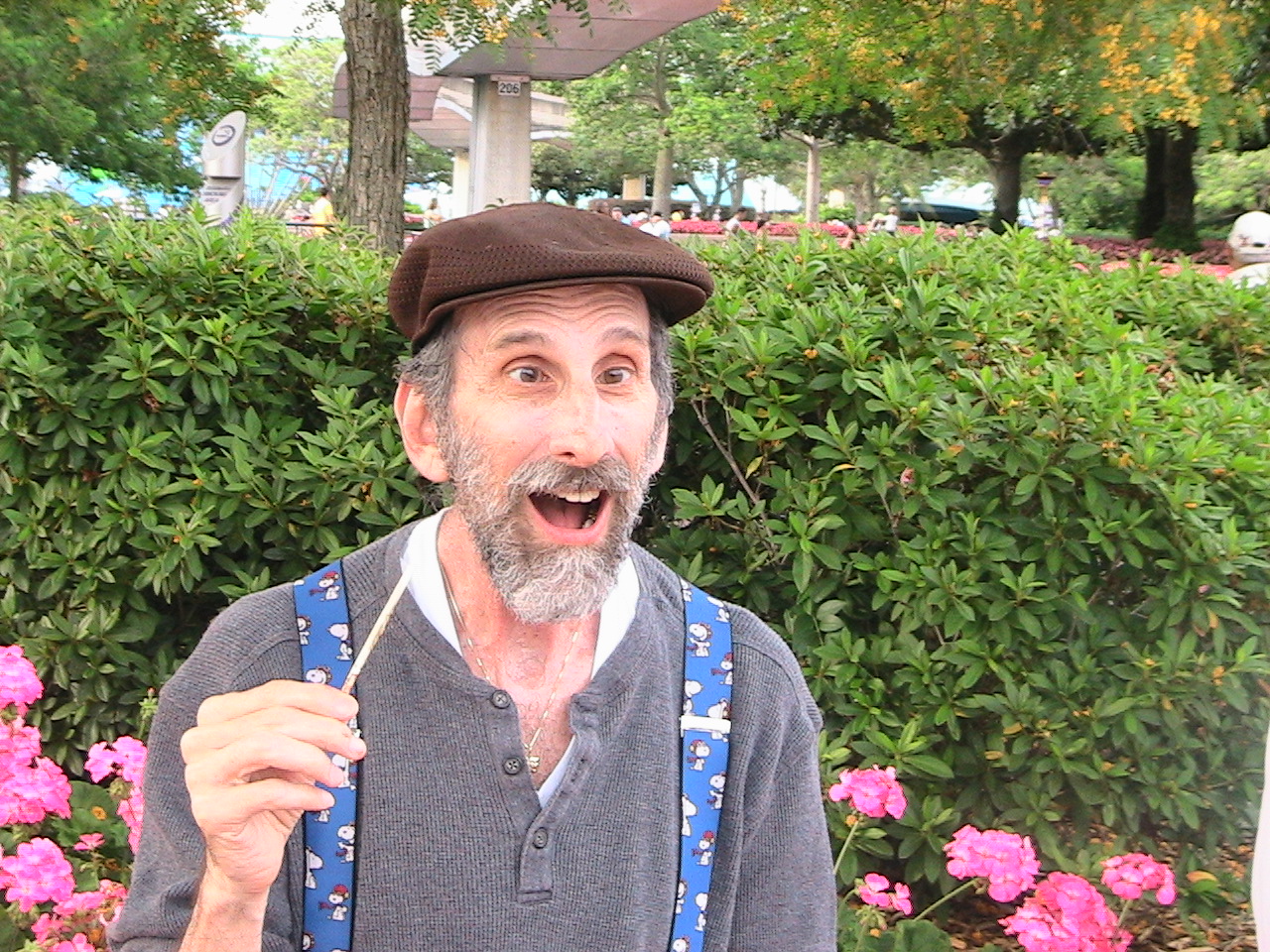Our director Stephanie “blocks” the show, positioning the players to fit the action of the dialogue. In my case with “Three Sisters,” I’m playing Ferapont, an 80 year old messenger who is hard of hearing (according to the script) and whom we made visually impaired to boot. So in my case, my blocking was for 2 characters – me and the maid, the faithful Ana, who leads me wherever I need to go.
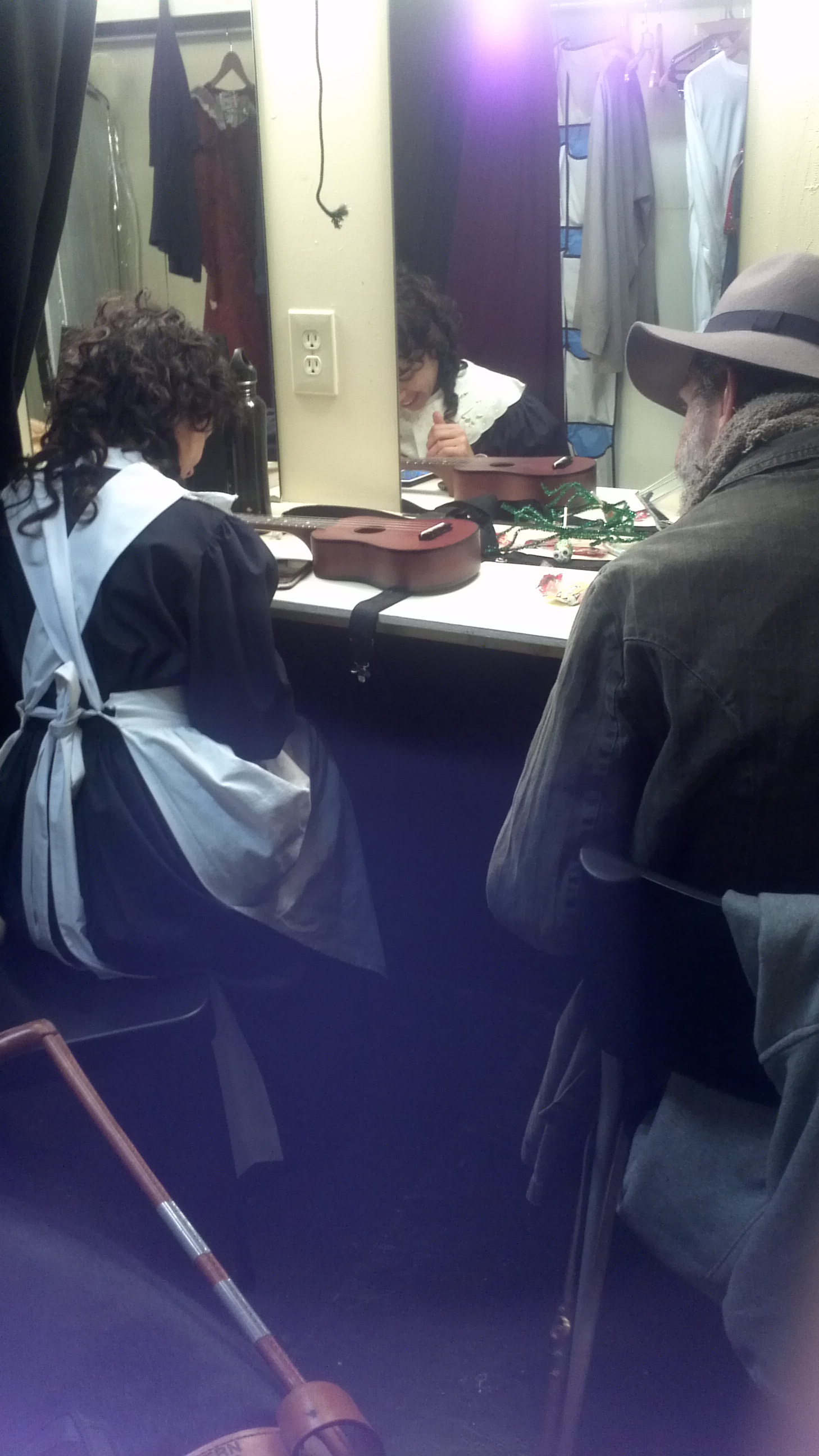
Usually I play sighted characters, keying off set pieces, changes in flooring, other actors, to get my bearings, but when I have the opportunity to play a blind character, I’ll have a timely cane or a sighted guide. (I’ve never used my guide dog on stage, though once I forgot to tie him down backstage and while dancing in the streets of Paris in “Hunchback of Notre Dame” came the familiar jingle of a dog collar and suddenly, there was my guide, bouncing in the streets of Paris with the ensemble. The audience loved it. After the show, the director said, “Let’s keep it in!”
Stephanie, an attractive brunette with piercing eyes behind rectangular glasses, sees and conveys a clear image of the “where, when and why” of each action for each player, choreographer Octi often assisting on the “how to get there.” With 16 actors, set pieces, flower arrangements, books, a smashing clock, toys, bottles, glasses, and dishes, which all move, there is a lot of constant traffic during the 4 acts of this show, both on and off stage. Everything is blocked precisely by Stephanie so the show runs like a well-oiled machine with no interruption in the action, and with no actors bumping into each other or the set. For this special show, the audience is also on stage on a movable riser which is repositioned 3 times during the play for different views in and around the Prozorov house.
The Candy Set

In order to get a sense of the surroundings on stage, Ana grabs some of my leftover Halloween candy and creates a model set, a colorful array of Jolly Ranchers, Twizzlers, and Sweet Tarts. She puts my hands on it so I can feel the set pieces, giving me a real sense of the space. My cell phone plays the part of the audience riser.
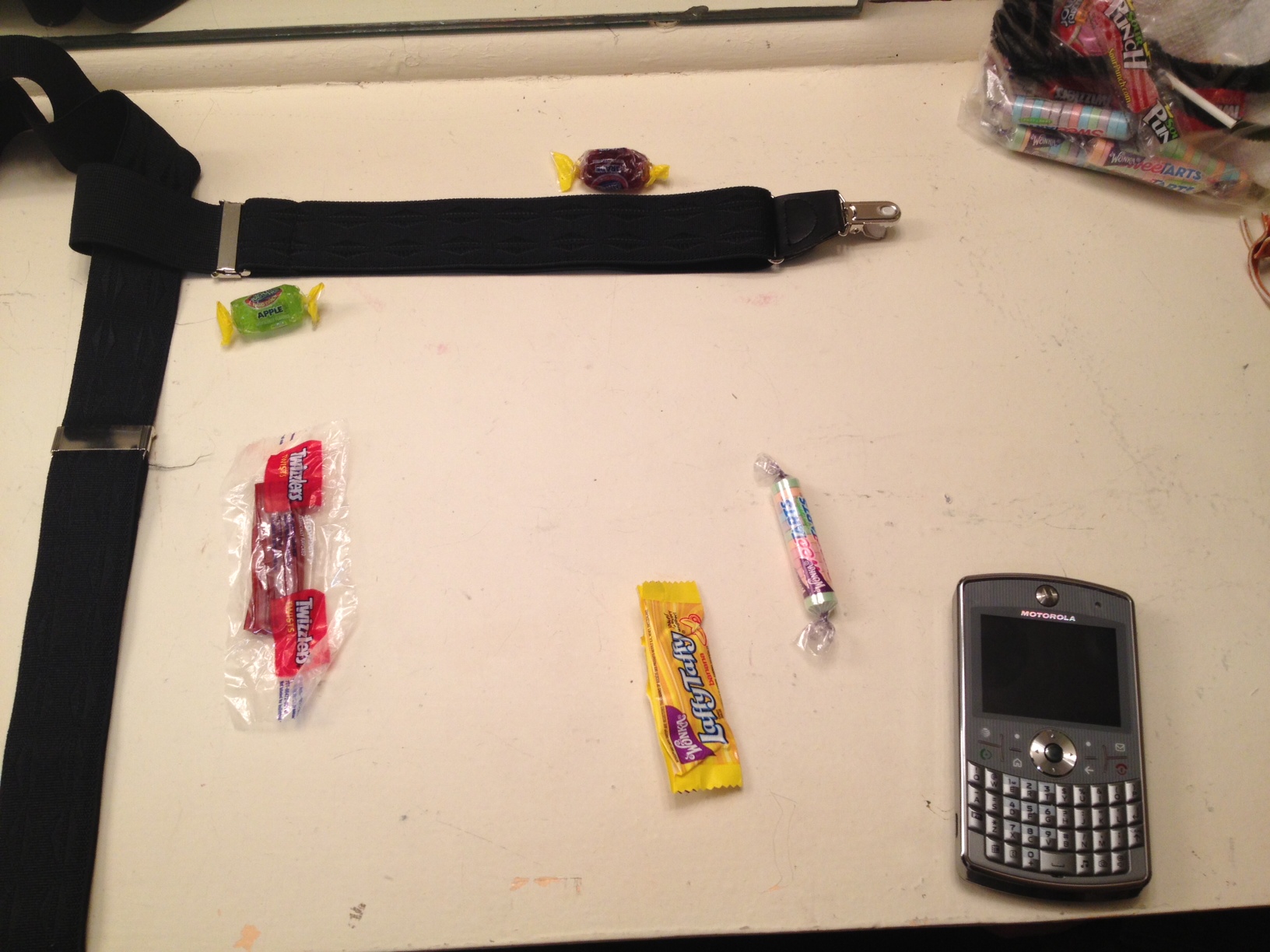

Miami Shores isn’t Flat
I have to remember that the 3 different staircases in the theatre I use during the show all have a different number of steps leading up and down from the stage – stage left has five, stage right has four, and the steps at the back of the house have six. As I go up and down these suckers, sometimes quickly, I gotta concentrate. I’m happy to report so far so good.
Costumes

The costumes, designed by multi-tasking Fernando (who is also the set and lighting designer), are quite elegant, the ladies in corsets, beautiful floor length dresses, boots with heels, the men bedecked in military garb, the maids in formal servant dress, and that messenger for the chairman (yours truly) looking a bit disheveled.
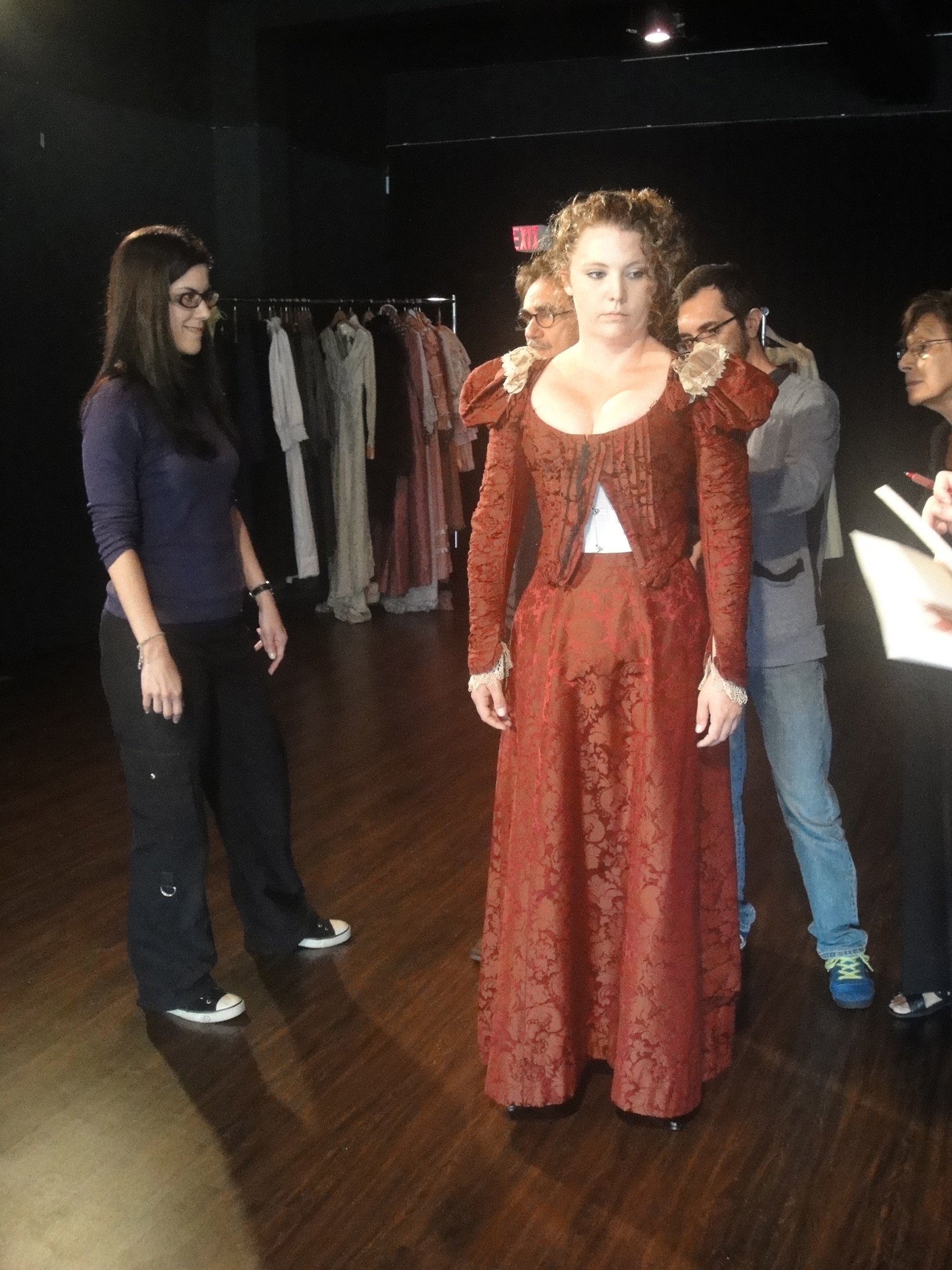
Lights and Sound
Once the entire play is blocked, we start back at the top and do a “cue-to-cue” where each action starts and stops so the lights and sound effects can be added to the action on stage. With doorbells ringing, a violin playing offstage, fire truck bells sounding, birds chirping, barking dogs and over 170 different light cues, this process alone takes 2 weeks to conclude.
All Hands on Deck
Once the show is blocked, lit and sound-synched, it’s time to work the transitions from act to act. The 5 Stage hands, including the lovely Tammy who does double duty as a maid on stage, strike and add the massive amount of set pieces and props during the transitions between the acts,and pivot the 49 members of the audience on the movable riser, smoothly and efficiently.

Downtime

You become a family when you work on a show. You nap backstage when you’re not working, eat together at the local bistro, and play with Billy the Dog whenever possible.


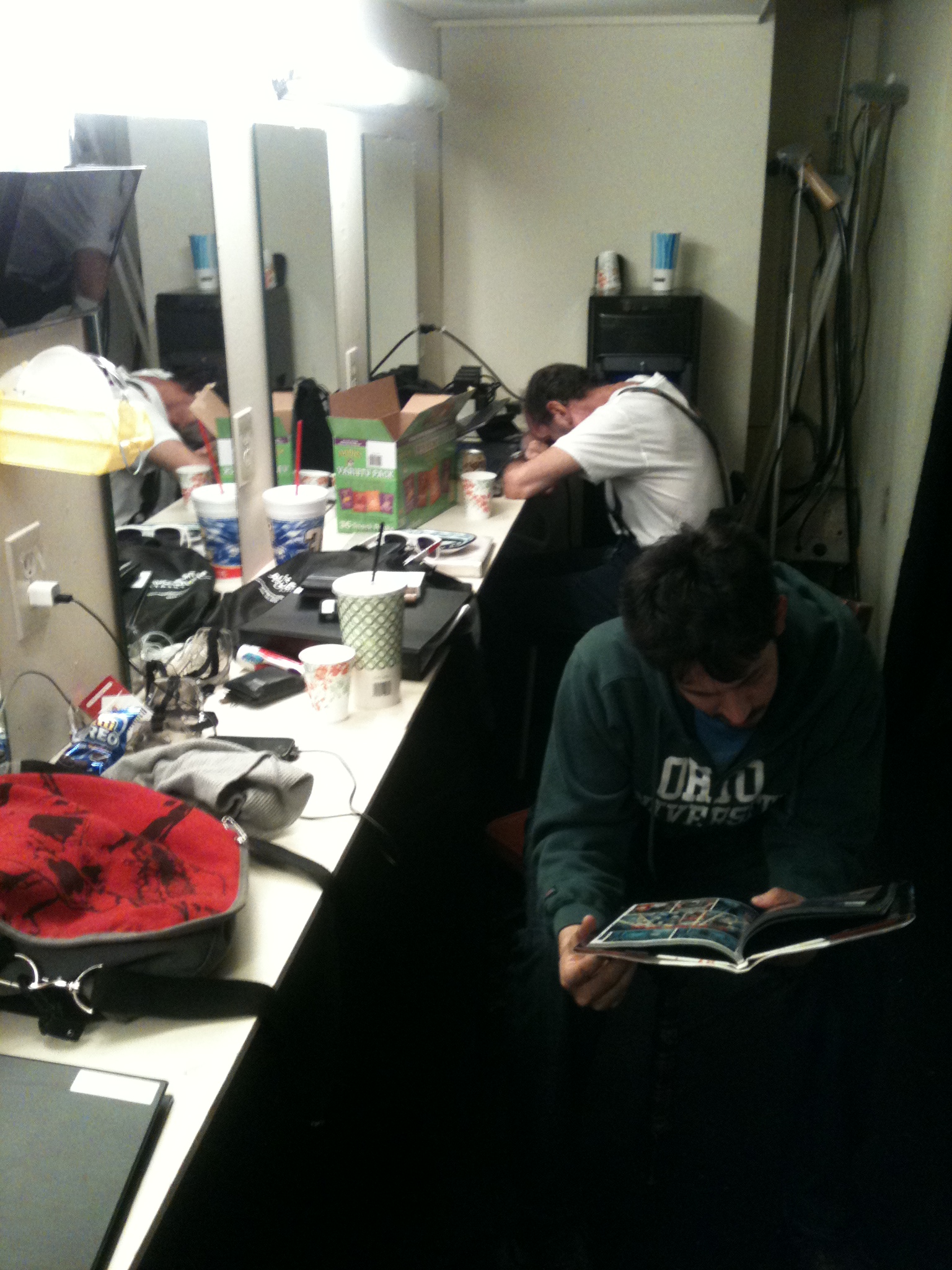
Opening
Once we open, Stephanie turns the show over to the stage manager Naomi, and the assistant stage manager Amanda, who “call” the show from top to bottom, making sure that the actors are in place and the almost 300 cues for lights, sound,set changes and actors goes off without a hitch.
It’s show time!



